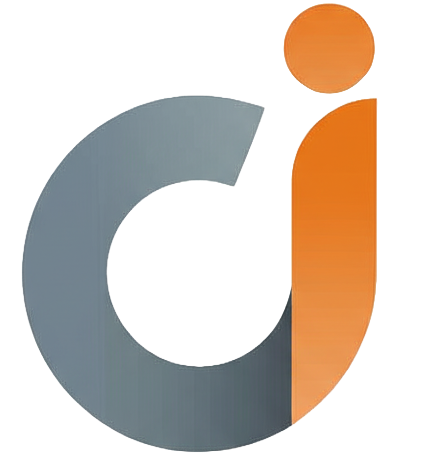Future Proof Your Career The Winners and Losers in Today’s Job Market

**”Remember when your biggest career worry was whether you’d get that promotion? Well, buckle up because today’s job market is like a game of musical chairs, and the Future feels like the music just got a lot faster.
I’ll be honest with you, the landscape has changed dramatically. Some folks are thriving while others are scrambling to keep up. Let’s dive into what’s really happening out there and, more importantly, how you can position yourself among the Future winners.
Would you like me to add the word Future in a more motivational sense (like Future career growth or Future opportunities) instead of just as emphasis?
The Great Career Shake Up, What’s Really Happening?
By the way, if you think this is just another economic downturn, think again, We’re witnessing the biggest transformation in how we work since the industrial revolution
Technology isn’t just changing jobs, it’s completely rewriting the rules, Remote work went from “nice to have” to “must have” overnight, Artificial intelligence is automating tasks we never thought possible, And honestly? It’s just the beginning

Here’s the thing about change: it creates both opportunities and casualties, The question isn’t whether change will affect your career, it’s whether you’ll ride the wave or get swept away by it
The Winners Who’s Thriving in Today’s Market
Tech Savvy Professionals
Let’s start with the obvious winners, People who embraced technology early aren’t just surviving, they’re absolutely crushing it
I know a marketing manager who learned basic coding during the pandemic, She didn’t become a programmer, but understanding how websites work made her incredibly valuable to her team, Now she’s leading digital transformation projects and earning 40% more than before
The lesson You don’t need to become a tech expert, but you absolutely need to be tech comfortable
Adaptable Remote Workers
Remember Sarah from accounting who used to complain about working from home Plot twist she’s now managing a team across three countries and loving every minute of it

Remote work winners share common traits:
- They communicate clearly in writing
- They’re self-motivated and disciplined
- They understand digital collaboration tools
- They’ve mastered the art of virtual presence
Continuous Learners
Here’s something interesting I’ve noticed: the most successful people I know treat learning like breathing, They don’t wait for their company to send them to training, they actively seek knowledge.
Online courses, industry podcasts, professional communities, you name it, They’re consuming content and connecting with peers constantly, Honestly, it’s like they have FOMO about falling behind, and that fear is keeping them ahead.
Emotional Intelligence Champions
By the way, while everyone’s talking about artificial intelligence, emotional intelligence is becoming even more valuable, machines can process data, but they can’t read a room or navigate complex human dynamics.

People with high EQ are:
- Leading through uncertainty with confidence
- Building stronger remote team relationships
- Negotiating better deals and resolving conflicts
- Becoming the go-to person for complex projects
The Losers: Who’s Struggling to Keep Up
The “This Too Shall Pass” Crowd
I hate to break it to you, but if you’re waiting for things to go back to “normal,” you’re setting yourself up for disappointment, The pandemic didn’t just pause the old way of working, it permanently rewrote the playbook
These folks are struggling because they’re fighting change instead of embracing it They’re the ones complaining about video calls, resisting new software, and hoping their company will mandate everyone back to the office full time
Single Skill Specialists
Remember when being perfect at one thing was enough? Those days are fading fast
I recently met a graphic designer who only knew print design, while his peers were learning web design, UX principles, and video editing, he stuck to what he knew, When his company pivoted to digital first marketing, guess who got left behind?

Technology Resisters
Let’s be real about this one : if you’re still printing emails to read them or avoiding new software because “the old way works fine,” you’re becoming irrelevant . The Future of work doesn’t wait for anyone, and clinging to outdated habits only pushes you further behind.
Technology resistance isn’t just about age, either . I know 25-year- olds who are surprisingly tech-averse and 60-year-olds who are digital natives . It’s about mindset, not birthdate . Those who stay adaptable and open to learning new tools are the ones who will thrive in the Future. The truth is , every skill you pick up today -no matter how small-prepares you for a stronger Future . Embracing digital growth is no longer optional; it’s the foundation of staying relevant in any career . The winners of tomorrow will be those who see change not as a threat but as an investment in their Future .
So ask yourself honestly : are you resisting progress , or are you ready to step into the Future with confidence ?
Poor Communicators
Here’s something that might surprise you: communication skills have become more important, not less important, in our digital world
When you can’t rely on body language and casual hallway conversations, every email, message, and video call needs to be crystal clear, Poor communicators are getting lost in the shuffle
Future Proofing Strategies That Actually Work
Develop Your Digital Fluency
You don’t need to become a programmer, but you absolutely need to understand how digital tools can enhance your work, start small:
- Learn keyboard shortcuts for programs you use daily
- Explore automation tools like Zapier or IFTTT
- Understand basic data analysis in Excel or Google Sheets
- Get comfortable with video conferencing and collaboration platforms

Honestly, spending 30 minutes a week learning new digital skills will compound dramatically over time
Build Your Personal Brand
By the way, your reputation now extends far beyond your immediate workplace, Your LinkedIn profile, professional network, and online presence are your new resume
I know it sounds exhausting, but building a personal brand doesn’t mean becoming an influencer, It means:
- Sharing insights about your industry
- Connecting with peers and thought leaders
- Demonstrating your expertise publicly
- Building relationships before you need them
Cultivate Multiple Revenue Streams
Let’s dive into something most people don’t want to hear: job security as we knew it is dead, The new security comes from having multiple options
Successful professionals are creating portfolio careers:
- Freelance or consulting work in their spare time
- Teaching or training others in their expertise
- Creating digital products or courses
- Building passive income streams
Master the Art of Networking
Networking isn’t about collecting business cards at stuffy events anymore, It’s about building genuine relationships with people who share your interests and values

The best networkers I know:
- Offer help before asking for it
- Stay in touch regularly, not just when job hunting
- Connect others in their network
- Show genuine interest in people’s work and challenges
Industry Specific Winners and Losers
Healthcare: The Resilience Champions
Healthcare workers have always been essential, but the pandemic proved their irreplaceable value, However, even within healthcare, there are clear winners and losers
Winners:
- Telehealth specialists
- Mental health professionals
- Healthcare technology experts
- Preventive care practitioners
Those struggling:
- Professionals resistant to digital health tools
- Those in declining specialties without adaptation plans
Education: The Great Transformation
Education got turned upside down, and the winners are those who embraced the change
Educational winners include:
- Online course creators
- Educational technology specialists
- Adaptive learning experts
- Student engagement specialists

Meanwhile, educators who couldn’t adapt to digital learning struggled significantly
Retail and Hospitality The Reinvention Stories
These industries got hit hard, but the winners found ways to reinvent themselves Restaurant owners who quickly pivoted to delivery and takeout Retail workers who mastered e-commerce and customer service technology
The lesson? Adaptability trumps industry every time.
The Skills That Matter Most
Critical Thinking n Problem-Solving
In a world of information overload, the ability to analyze, synthesize, and solve complex problems is incredibly valuable These skills can’t be automated and become more important as routine tasks disappear
Digital Literacy
I can’t stress this enough: basic digital literacy is no longer optional. You need to understand:
- Cloud storage and collaboration
- Basic data analysis
- Social media for professional purposes
- Online security and privacy
Creativity and Innovation
While machines can process and analyze, human creativity remains uniquely valuable The ability to think outside the box, generate new ideas, and approach problems creatively is increasingly prized
Communication and Collaboration
In our connected world, the ability to communicate clearly across different mediums and collaborate effectively with diverse teams is essential
Common Mistakes to Avoid
Waiting for Perfect Timing
Here’s the truth: there’s never a perfect time to upskill, change careers, or take risks. The people who succeed are those who start before they feel ready.
Focusing Only on Hard Skills
Technical skills are important, but soft skills often determine who gets promoted and who gets laid off. Don’t neglect the human side of professional development.
Ignoring Industry Trends
By the way, ignorance isn’t bliss when it comes to industry changes You need to stay informed about trends affecting your field, even if they seem irrelevant now
Building Your Future Proof Career Plan
Assess Your Current Position
Honestly evaluate where you stand:
- What skills do you have that are becoming more valuable?
- What skills do you lack that are in high demand?
- How adaptable have you been to recent changes?
- What’s your reputation in your industry?
Create Your Learning Roadmap
Based on your assessment, create a specific plan:
- Identify 3 to 5 key skills to develop this year
- Set aside dedicated time for learning each week
- Find mentors or communities in your target areas
- Track your progress and adjust as needed
Create Your Learning Roadmap
Based on your assessment, create a specific plan:
- Identify 3 to 5 key skills to develop this year
- Set aside dedicated time for learning each week
- Find mentors or communities in your target areas
- Track your progress and adjust as needed
Frequently Asked Questions
Q: How do I know which skills to focus on?
A: Look at job postings in your field and adjacent fields. What skills appear repeatedly? Also, pay attention to what your most successful colleagues are learning.
Q: Is it too late to change careers if I’m over 40?
A: Absolutely not. Many successful career changes happen after 40. The key is leveraging your existing experience while adding new skills that complement it.
Q: How much time should I spend learning new skills?
A: Aim for at least 5-10 hours per week. This might sound like a lot, but consider it an investment in your future earning potential.
Q: Should I get another degree or focus on short-term certifications?
A: It depends on your field and goals. Generally, industry certifications and practical skills are more valuable than additional degrees, unless you’re changing fields entirely.
Q: How do I stay motivated when learning new skills feels overwhelming?
A: Start small and celebrate progress. Break large goals into smaller milestones, and remember that consistency beats intensity every time.
Conclusion:
The job market is changing faster than ever, and preparing for the future has become more important than relying on past methods. According to USNews, shifts in technology , automation , and globalization continue to reshape industries , creating both winners and losers in today’s economy . As Careerizo highlights, the professionals who thrive are those who adapt quickly , embrace lifelong learning, and develop skills that remain relevant for the future .
To truly future – proof your career , you must be proactive rather than reactive . That means identifying rising trends, investing in digital and soft skills , and being open to opportunities beyond traditional job paths . The future will reward individuals who stay flexible , resilient , and willing to reinvent themselves when challenges appear.
Whether you choose freelancing, entrepreneurship , or full-time roles , remember that success depends on how you position yourself in relation to where the future of work is heading. It’s not about avoiding change but about embracing it strategically .
Your career is ultimately in your hands . The future belongs to those who prepare for it today.

